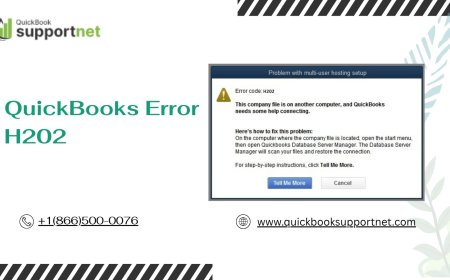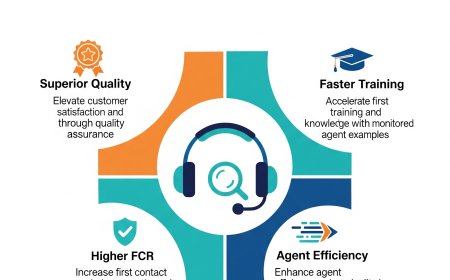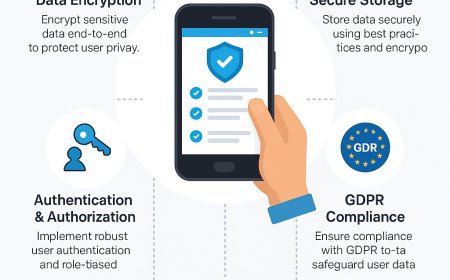Building Trust: Why Security and Compliance Matter in Flutter Apps
Discover why security and compliance are vital for Flutter apps. Learn how to build trust, protect user data, and ensure regulatory adherence when you hire dedicated Flutter developers.

In todays digital-first world, trust has become a non-negotiable currency. Users expect every application they download to be secure, compliant, and resilient against data breaches. Flutter, Googles powerful cross-platform framework, empowers developers to deliver beautiful, high-performing apps faster than ever. However, as the demand for Flutter apps grows, so does the need for robust security measures and strict regulatory compliance.
Businesses that overlook these aspects risk losing user trust, facing legal penalties, and damaging their reputation. This blog post delves into why security and compliance are not just technical concerns but strategic imperatives for anyone looking to build successful Flutter applications.
Understanding Security and Compliance in the Flutter Ecosystem
Before we can appreciate the importance of security and compliance, it is crucial to define what they mean in the context of Flutter app development.
Security involves safeguarding user data, ensuring secure communications, preventing unauthorized access, and protecting applications from vulnerabilities that hackers could exploit. In Flutter, this extends from secure coding practices to safe data storage and encryption.
Compliance, on the other hand, refers to adhering to regional and industry-specific data protection laws and standards. Regulations such as GDPR (General Data Protection Regulation), CCPA (California Consumer Privacy Act), HIPAA (Health Insurance Portability and Accountability Act), and others impose strict guidelines on how apps collect, store, and process user data.
Therefore, when you hire dedicated Flutter developers, youre not just looking for coding expertise. Youre partnering with professionals who understand the gravity of building secure and compliant digital products.
Why Ignoring Security Can Derail Your Flutter App
Failing to prioritize security can have far-reaching consequences that extend beyond financial loss.
For starters, data breaches can erode customer trust overnight. A single incident can deter thousands of users from ever using your app again. Moreover, compromised apps often become gateways for wider network attacks, resulting in reputational harm and legal actions.
In the context of Flutter, one common oversight is the insecure storage of sensitive data. Developers might mistakenly store authentication tokens, API keys, or user credentials in local storage without proper encryption. Furthermore, improper use of third-party plugins can introduce unintentional vulnerabilities.
Hence, organizations must ensure that when they hire dedicated Flutter developers, those developers are trained in secure coding standards, know how to conduct regular vulnerability assessments, and follow best practices for protecting user data.
Key Security Practices for Flutter App Development
Security must be a proactive discipline, embedded in every stage of the development lifecycle. Here are some critical best practices that every Flutter team should adopt
-
Use Secure Storage: Always store sensitive information like API keys and user credentials using secure storage solutions. Flutter offers packages like
flutter_secure_storagethat encrypt data at rest. -
Implement HTTPS and SSL Pinning: All communications between the app and backend servers must be encrypted using HTTPS. SSL pinning adds an extra layer of protection against man-in-the-middle attacks.
-
Authentication and Authorization: Leverage robust authentication methods like OAuth 2.0. Implement token expiration and rotation policies to minimize risk.
-
Secure APIs: Ensure that your backend APIs validate requests properly and implement rate limiting to prevent abuse.
-
Regular Updates: Keep dependencies, plugins, and the Flutter SDK up to date. Vulnerabilities are often patched in new releases.
When businesses hire dedicated Flutter developers, they should ensure these developers not only implement these measures but also stay informed about the latest threats and industry best practices.
Navigating the Complex World of Compliance
Security and compliance go hand in hand, yet they are distinct. Compliance focuses on meeting legal requirements, which vary depending on your target market and industry.
For example, an e-commerce app operating in Europe must comply with GDPR, which requires clear user consent, the right to be forgotten, and data portability. A healthcare app in the United States must follow HIPAA, ensuring medical data is handled with strict confidentiality.
Non-compliance can result in massive fines. For instance, GDPR fines can reach up to 20 million or 4% of global annual turnover, whichever is higher. This can cripple startups and SMEs overnight.
When you hire dedicated Flutter developers, you need to ensure they understand these regulatory frameworks. They should build apps that respect user privacy by design, employ secure data transfer protocols, and provide transparent privacy policies.
Building a Culture of Security and Compliance
Achieving true security and compliance is not a one-time project. It requires cultivating a culture where every stakeholder, from developers to project managers and testers, takes responsibility for protecting user data.
Companies can foster this culture by
-
Regular Training: Equip your Flutter developers with up-to-date knowledge about evolving threats and new regulations.
-
Code Reviews: Conduct periodic security-focused code reviews. Peer reviews often catch mistakes that automated tools may miss.
-
Penetration Testing: Hire external security experts to simulate attacks and identify potential vulnerabilities before they become liabilities.
-
Clear Policies: Establish clear privacy and security policies that guide the development and maintenance of all Flutter applications.
When businesses hire dedicated Flutter developers, they should look for professionals who value this mindset and work proactively to uphold it throughout the apps lifecycle.
Flutter-Specific Tools and Plugins for Enhanced Security
Flutters vibrant ecosystem offers several tools that help developers build secure apps faster. Here are a few essential resources to consider
-
flutter_secure_storage: Encrypts and securely stores key-value pairs.
-
http: Supports HTTPS connections and can be enhanced with certificate pinning.
-
OAuth2: Implements secure authentication protocols.
-
Firebase Auth: Provides secure and scalable authentication methods.
-
AppCheck: A Firebase service that protects your backend resources from abuse.
When you hire dedicated Flutter developers, they should know how to integrate these tools effectively, minimizing the attack surface of your applications.
The Business Case for Investing in Security and Compliance
Many companies, especially startups, view security and compliance as cost centers. However, treating them as integral parts of your product strategy is a competitive advantage.
Customers are increasingly aware of their data rights and more likely to choose apps that demonstrate transparency and trustworthiness. By building secure and compliant Flutter apps, businesses can
-
Strengthen brand reputation
-
Reduce legal risks and fines.
-
Gain customer loyalty and confidence.
-
Attract security-conscious partners and investors.
Moreover, the cost of preventing security breaches is far lower than the cost of recovering from them. When you hire dedicated Flutter developers who prioritize security and compliance, you invest in long-term business resilience.
Conclusion: Trust is Your Strongest Asset
In a world where data is the new oil, trust is your strongest asset. Businesses that neglect security and compliance risk alienating customers, attract hefty fines, and lose their competitive edge.
Flutters speed and flexibility make it an excellent choice for cross-platform development. However, the framework alone cannot protect you from security breaches or non-compliance. It takes knowledgeable, proactive developers and a company-wide commitment to build applications that users can trust.
So, if youre ready to build robust, secure, and compliant apps, remember to hire dedicated Flutter developers who understand the responsibility that comes with handling user data. Because at the end of the day, trust is earned line by line of secure, compliant code.














































